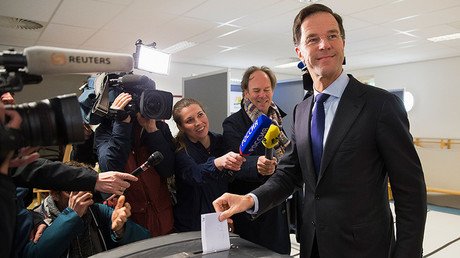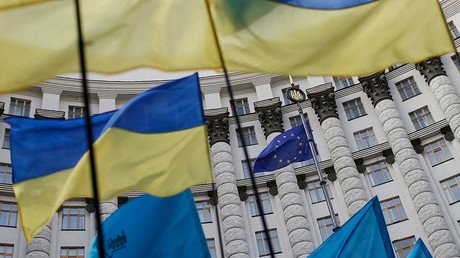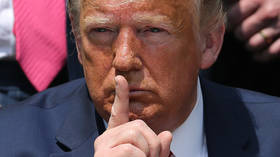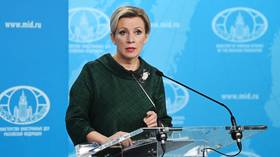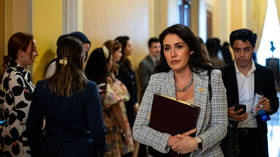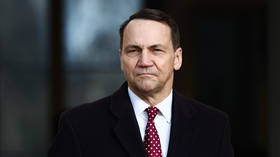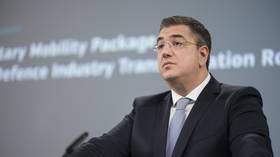Ukraine’s EU bid: Dutch PM says ‘ratification can’t go ahead’ as Kiev says ‘nothing has changed’
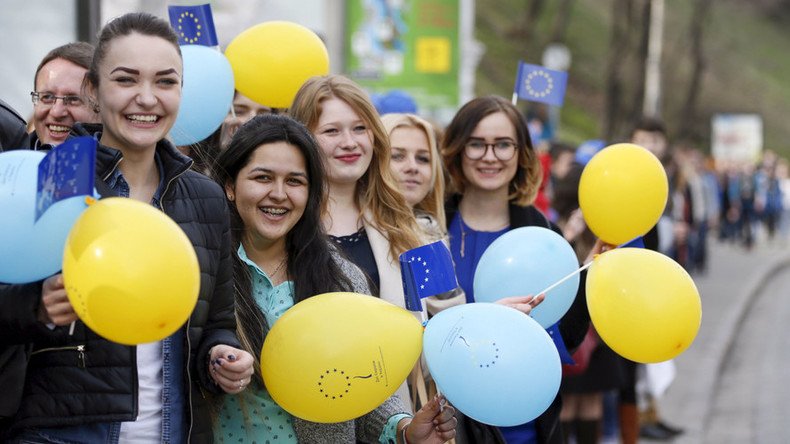
Ukraine says “nothing has changed” in Kiev’s desire to “push towards the EU” despite suffering a setback after the Dutch public overwhelmingly voted against a treaty on closer ties between the EU and Ukraine, while the Dutch PM says “ratification can’t go ahead.”
Dutch Prime Minister Mark Rutte had been staunchly in favor of a ‘Yes’ vote, which would have led to the Netherlands approving an association treaty – paving the way for closer ties between the EU and Ukraine. However, he was forced to take into account public opinion, with 64 percent against the deal, and the government may have to reconsider ratifying the treaty.
"It's clear that 'No' have won by an overwhelming margin, the question is only if turnout is sufficient," Rutte stated. "If the turnout is above 30 percent with such a large margin of victory for the 'No' camp then my sense is that ratification can't simply go ahead."
Closer integration with Europe and giving its citizens visa-free travel across much of the continent has been one of Ukrainian President Petro Poroshenko’s major goals. Despite the resounding rejection by the Dutch public, the Ukrainian leader seemed to be anything but downbeat.
“The referendum in the Netherlands was strictly in an advisory nature. We will continue our movement towards the European Union,” he told reporters in Tokyo. "Under any circumstances we will continue to implement the association agreement with the European Union including a deep and comprehensive free trade agreement," Poroshenko added.
Референдум в Нідерландах має виключно консультативний характер. Стратегічно він не є перешкодою на шляху України до Європи#УкраїнаЦеЄвропа
— Петро Порошенко (@poroshenko) April 7, 2016
However, the Ukrainian president lashed out at those who organized the referendum, saying it was not about the agreement between Ukraine and the EU, but it was “an attack on the unity of Europe and an attack on the expansion of European values.”
Ukraine’s Foreign Minister Pavlo Klimkin was unflustered, saying that “nothing had changed” and the agreement would be implemented sooner or later, mentioning that the “European integration of Ukraine cannot be stopped.”
“Of course from the point of view of the results, this is the Netherlands’ relationship with Europe and the desire of the Euroskeptics to harm this unity and one could really feel how they managed to mobilize this camp,” said Klimkin, who was also in Tokyo.
Poroshenko’s image was potentially tarnished after it emerged he had put money in offshore accounts, which was revealed by the release of the Panama Papers, though he denied this was to avoid paying tax.
“This is like a cold shower for the Ukrainian politicians who believe that loud shouting and wild hopping is more important than efficient work,” said Oleksandr Vilkul, a leader of the Opposition Bloc party. “This is an assessment to those who think that no one will notice excessive corruption.”
The referendum may have been non-binding, as Poroshenko pointed out; however, it was valid and has to be taken into consideration after meeting the minimum 30 percent threshold.
This is likely to give Rutte a major headache. His government is not popular and it would be unwise for him to go against the will of the people. However, the Dutch currently hold the EU’s rotating presidency and he will be looking to see if he can change the treaty in order to try and appease all parties.
Rutte added that his government will consult with parliament and its European partners “step by step, that could take days or weeks,” Reuters reported. However, according to Dutch Socialist Party MP Tiny Kox, the people of the Netherlands have spoken and do not need outside interference from Brussels.
“We have too many powers in Europe at the moment who intervene in our internal matters of other countries. We should pay more respect to the national sovereignty and in this case, the sovereignty of the Dutch citizens to decide,” he said, speaking to RT.
Kox also lashed out at Jean-Claude Juncker, who before the referendum said that: “I do not believe that the Dutch people will say no because it would open the door to a big continental crisis.”
“Every citizen in Europe is entitled to say whatever he wants,” Kox told RT. “But I think it was very bad behavior of the president of the European Commission to say what the results of our referendum would mean.”
